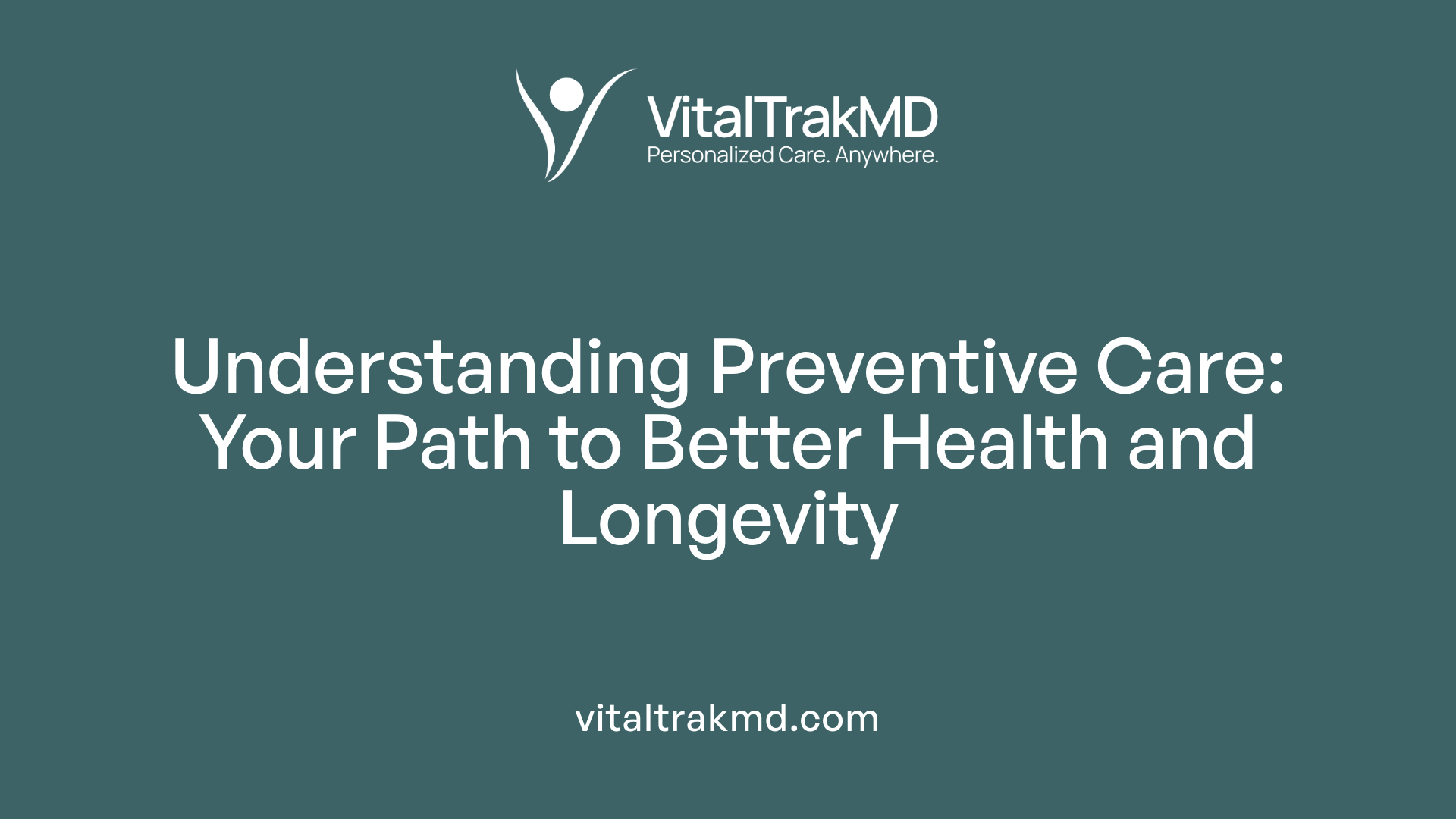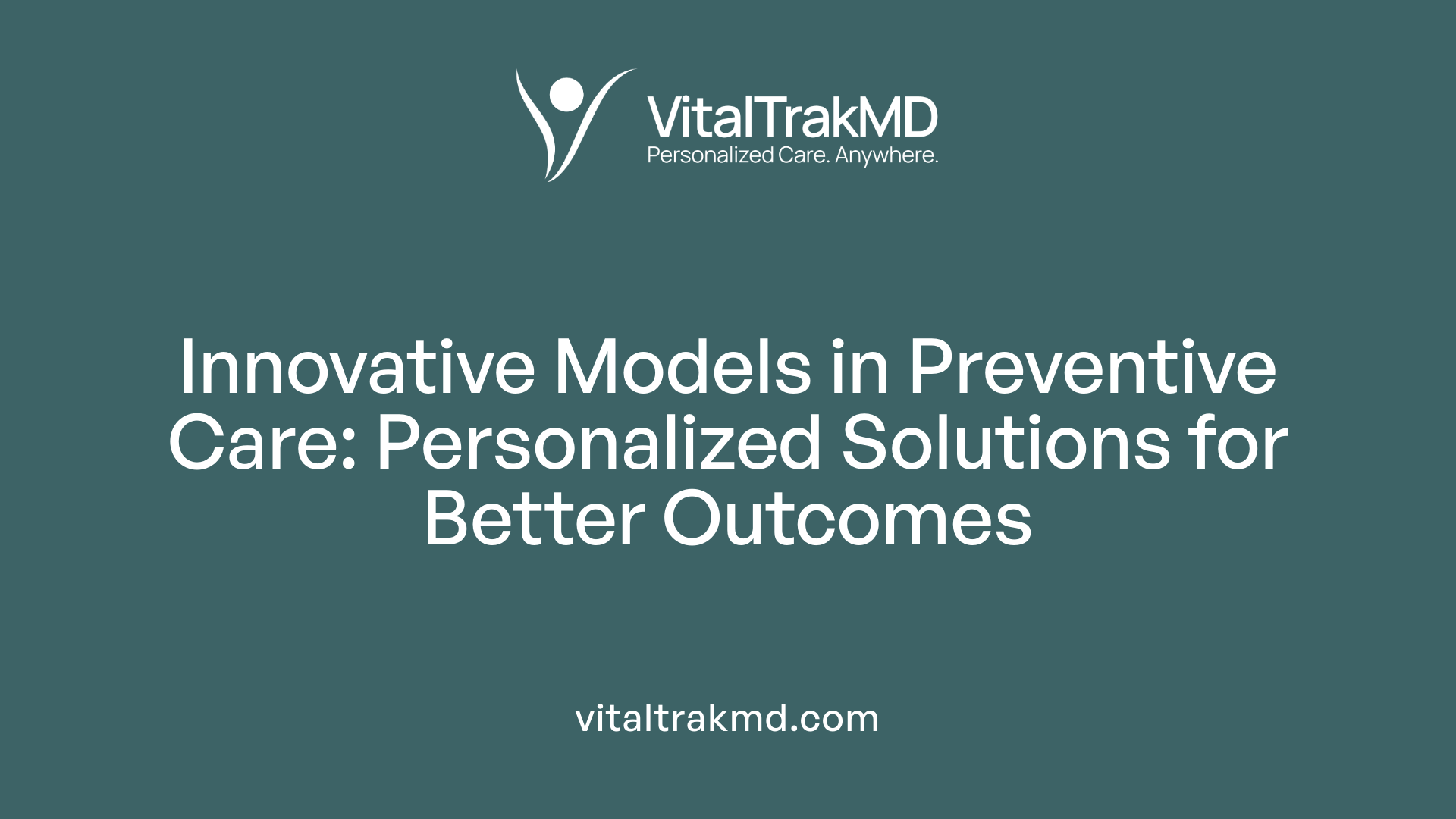Supporting Patients With Education About the Benefits of Preventive Care

Why Educating About Preventive Care Matters
Preventive care is a cornerstone of maintaining long-term health and wellness, yet many adults remain unaware of the full range of benefits and services available to them. Educating patients about preventive care empowers them to take proactive measures, ensuring early disease detection and the adoption of healthier lifestyles. This article explores how comprehensive education on preventive care benefits can support patient engagement and improve health outcomes across communities.
Understanding the Scope and Benefits of Preventive Care

What is Preventive Care and Why is it Important?
Preventive care involves proactive health services designed to prevent illnesses or detect health issues early when they are more manageable. It aims to delay or prevent the onset of chronic diseases, thereby improving long-term health outcomes and enhancing quality of life. Early identification through screenings and counseling supports not only wellness but also effective weight management and lifestyle improvements.
What Types of Preventive Services Are Covered?
Preventive services for adults encompass a wide range of screenings, immunizations, and counseling. Common screenings include checks for blood pressure, cholesterol, diabetes, depression, various cancers (colon, lung, skin), and infectious diseases like HIV, hepatitis B and C, and tuberculosis. Immunizations such as influenza, HPV, shingles, hepatitis A and B are included. Additionally, counseling for diet, exercise, smoking cessation, stress management, and fall prevention is typically offered.
How Does Early Detection Benefit Health?
Early detection through preventive tests and regular wellness visits allows for timely interventions, reducing the risk of serious illnesses. It can limit the progression of chronic conditions like diabetes and cardiovascular diseases, reduce emergency and urgent care visits, and promote sustained healthier lifestyles. These benefits lead to fewer complications, longer life expectancy, and improved daily functioning.
What Are the Insurance Coverage and Cost Benefits?
Most health insurance plans cover many preventive services without copays or deductibles, including through annual wellness visits. This coverage facilitates access to essential screenings and immunizations without added financial burden. Preventive care also contributes to cost savings over time by decreasing the need for expensive treatments and hospitalizations. Programs like MDVIP demonstrate that personalized preventive care can reduce emergency visits and help many members achieve healthcare cost savings exceeding their membership fees within a few years.
| Aspect | Description | Example or Detail |
|---|---|---|
| Definition | Proactive health measures to prevent or detect disease early | Screenings, immunizations, counseling |
| Services Covered | Blood pressure, cholesterol, cancer screenings, immunizations, lifestyle counseling | Flu shots, cancer screenings, diet and exercise advice |
| Importance of Early Detection | Enables timely treatment, reduces complications | Diabetes screening preventing severe health decline |
| Insurance Coverage | Most plans cover preventive care without cost-sharing | Annual wellness visits free to insured individuals |
| Cost Benefits | Decreased emergency visits and hospitalizations | MDVIP members showing cost savings after 3 years |
Comprehensive Preventive Services: Screenings, Immunizations, and Counseling

What specific screenings are recommended for adults?
Adults benefit from a wide range of screening tests included in preventive care. Common screenings cover blood pressure, cholesterol, colorectal cancer, depression, diabetes, hepatitis B and C, HIV, lung cancer, obesity, sexually transmitted infections (STIs), and tuberculosis. These screenings help detect health issues early, critically supporting chronic disease prevention and wellness management.
Which vaccinations and immunization programs are covered?
Preventive care also includes essential adult immunizations such as influenza, hepatitis A and B, HPV, shingles, and others. These vaccines are provided without charge, even if deductibles haven't been met, ensuring that adults can protect themselves from serious infections and complications.
How does mental health and lifestyle counseling fit into preventive care?
Preventive services extend beyond physical health to encompass mental health screening and lifestyle counseling. Services like diet counseling, exercise guidance, and stress management support overall well-being. Programs designed to prevent falls and manage weight contribute to reducing risks of chronic diseases and enhancing quality of life.
How are preventive care services incorporated during annual wellness visits?
Annual wellness visits are vital for comprehensive preventive care. These encounters allow healthcare providers to conduct personalized health assessments, screenings, and diagnostics tailored to individual needs. They provide an opportunity for counseling on nutrition, exercise, smoking cessation, and stress management, promoting proactive health management throughout the year.
| Service Area | Examples | Importance |
|---|---|---|
| Adult Screenings | Blood pressure, cholesterol, diabetes, cancer, STIs | Early detection of chronic conditions and diseases |
| Vaccinations | Flu shot, hepatitis A & B, HPV, shingles | Prevention of infectious diseases |
| Mental Health & Lifestyle | Depression screening, diet, exercise, stress management | Supports holistic wellness and chronic disease prevention |
| Annual Wellness Visits | Personalized diagnostics, health promotion counseling | Enables tailored preventive plans and health monitoring |
Integrating Preventive Care Education into Wellness and Weight Management Programs

How does preventive care support weight management?
Preventive care plays a crucial role in weight management by focusing on early identification and addressing risk factors such as obesity. Through regular screenings and counseling, individuals receive support to maintain healthy weight and reduce the risk of chronic diseases.
What role do diet and exercise counseling play in preventive care?
Diet and exercise counseling are essential components of preventive services. These sessions educate individuals about nutrition, physical activity, and lifestyle modifications that contribute to sustainable weight control and overall wellness. Such counseling is often integrated into preventive visits and wellness programs.
What programs emphasize behavioral and lifestyle changes in preventive care?
There are several specialized programs that focus on behavioral and lifestyle changes, including MOVE! Weight Management, ShipShape, and Eat Right for Life. These initiatives promote sustainable weight loss, fitness enhancement, proper nutrition, and behavioral strategies to improve long-term health outcomes.
Can you provide examples of preventive care-supported wellness programs?
Yes, examples include:
- MOVE! Weight Management Program: Offers classes and resources aimed at sustainable weight reduction.
- Eat Right for Life: Focuses on nutritional education and healthier eating habits.
- ShipShape: Enhances physical fitness and mental resilience through structured programs.
- Operation Health Living: Educates on preventing metabolic syndrome, obesity, and related conditions through risk reduction strategies.
These programs are often coupled with personalized coaching and screening that underpin preventive care efforts, fostering healthier lifestyles and better weight management results.
Innovative Preventive Care Models Enhancing Patient Engagement and Outcomes

Personalized Preventive Care Programs
Personalized preventive care focuses on tailoring health screenings, diagnostics, and lifestyle coaching to an individual's unique health profile. This bespoke approach promotes better management of chronic conditions and encourages healthier behaviors through nutrition and exercise guidance, making prevention more effective.
MDVIP and Medicare Diabetes Prevention Program Examples
Programs like MDVIP and the Medicare Diabetes Prevention Program illustrate successful models of preventive care. MDVIP emphasizes longer annual wellness visits, typically 60 to 90 minutes, fostering stronger patient-physician relationships. Meanwhile, Medicare’s program specifically targets diabetes prevention through structured lifestyle interventions.
Longer Wellness Visits and Physician Accessibility
MDVIP’s approach includes smaller practice sizes that enable more personalized attention and greater physician accessibility. Extended wellness visits allow for comprehensive health assessments, detailed counseling, and development of individualized care plans — all vital for early risk detection and proactive management.
Cost-Effectiveness and Health Improvements
Evidence shows that members participating in these personalized care models experience reductions in emergency and urgent care visits over time. Although initial health expenditures may rise, costs typically stabilize and align with non-members by year three. Notably, 63% of MDVIP members realize cost savings exceeding their membership fees, driven largely by younger individuals adopting lifestyle modifications. This improved engagement fosters trust and sustained preventive action, leading to better overall health outcomes and potential long-term savings.
Empowering Patients Through Education: Building Trust and Promoting Lifelong Health

Why is patient education important in preventive care?
Patient education is essential in preventive care because it equips individuals with the knowledge to recognize health risks early and understand the benefits of screenings, immunizations, and lifestyle changes. Educated patients are more likely to participate actively in their health management, which leads to early detection of conditions like diabetes, heart disease, and cancer, improving long-term outcomes.
How can awareness about no-cost preventive services be increased?
Increasing awareness about no-cost preventive services is vital. Many adults are unaware that screenings for blood pressure, cholesterol, cancer, and immunizations like flu and shingles vaccines are covered without charge, even before meeting deductibles. Public health campaigns, provider communication during appointments, and community outreach programs can inform patients about these benefits and encourage utilization.
What role do ongoing patient-physician relationships play?
Building strong, ongoing relationships between patients and physicians fosters trust and continuous engagement. Models like MDVIP emphasize extended annual wellness visits and smaller practice sizes to enhance personalized care. This trust encourages patients to share concerns openly, adhere to preventive recommendations, and participate in coaching on nutrition, exercise, and stress management.
How does education encourage active health management and lifestyle change?
Through education, patients receive guidance on diet counseling, smoking cessation, weight management, and mental health screening. Knowing the impact of these factors motivates individuals to adopt healthier habits, supported by tailored programs like MOVE! and Freedom From Tobacco. Active participation in health leads to better disease prevention and overall wellness over time.
The Vital Role of Education in Advancing Preventive Care
Education about preventive care is essential for encouraging proactive health management and fostering healthier communities. By understanding the broad range of no-cost services available—from screenings and immunizations to lifestyle counseling—patients can take control of their wellness journeys. Innovative care models and personalized programs demonstrate that informed patients who maintain ongoing engagement with their healthcare providers achieve better outcomes and, often, cost savings. Supporting patients through education not only improves individual health but also strengthens the overall healthcare system by reducing the prevalence and impact of chronic disease.
References
- Preventive care benefits for adults
- Preventive Care
- The Impact of Personalized Preventive Care on Health ...
- Preventive Care
- Health Education and Disease Prevention
- The Benefits of Preventive Care and Regular ...
- Top 6 Benefits of Preventive Care
- Importance of Preventive Care or Prophylaxis
- Preventive Care: Why It's the Key to a Healthier, Happier Life
Recent articles
Want to Feel Better and Live Healthier?
Join hundreds of patients taking control of their health with personalized care that fits their life – not the other way around.
Rated 4.8/5 by 32+ customers







